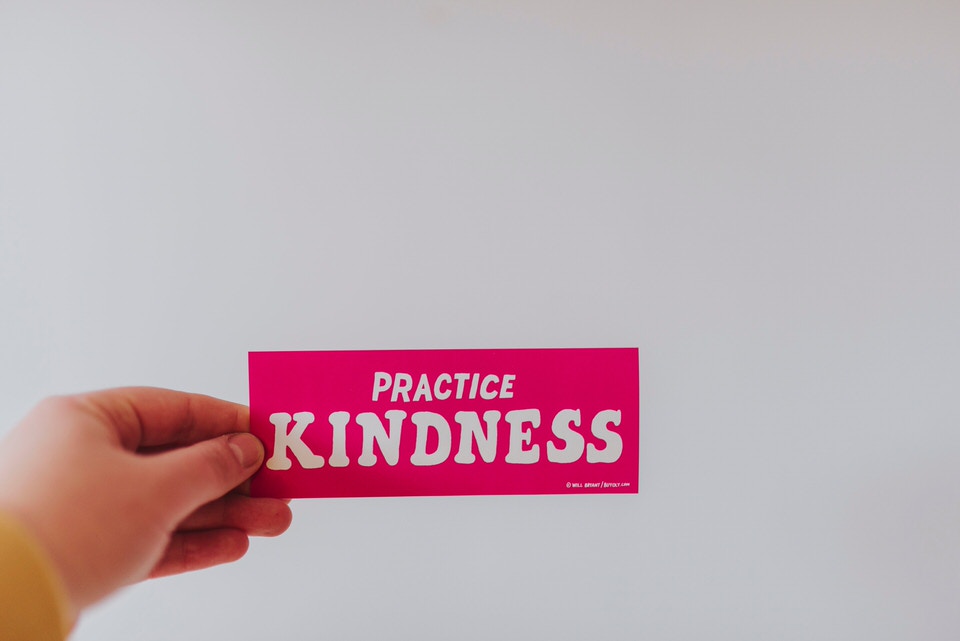
Your anxious negative thoughts are not factual. In fact, they are often based on limiting beliefs, negative patterns of thinking, or fears.
As humans, we have a negativity bias. This means that we are more likely to notice and remember negative experiences and thoughts. This can be beneficial as a form of protection, because it can be important to remember negative experiences so they don’t happen again.
It was helpful when we were living as hunter-gatherers to remember which berries were poisonous, or where dangerous animals tended to roam in order to survive.
The negativity bias becomes harmful when it prevents us from noticing the positive, and from living our lives fully.

Anxious negative thoughts are the inaccurate thoughts that are used to reinforce your difficult emotions. Each and every person has experienced one or more of the cognitive distortions that follow. Whether they have come about from experience, culture, or your own internal fears, they can distort your perception and view of the world to one that is not accurate.
As a result, you will be feeling and acting upon anxious negative thoughts that are not reflective of reality. You can never be completely unbiased, but you can start to become more aware of how you get in your own way so that you can move forward with your goals, and start to be more appreciative of the enjoyable moments in your life.
Identify Your Anxious Negative Thoughts
Magnification
Making things out to be bigger than they really are. For example, you may think your mistakes are bigger or more significant than they actually are. We are often our own worst critics.
Minimization
Making things out to be smaller or less important than they actually are. For example, you may minimize your accomplishments or strengths as not being as important as they actually are. This is more than being humble, but it is downplaying your achievements as a result of not feeling confident.
Catastrophizing
Seeing only the worst possible outcome of a situation. For example, assuming that your significant other has been in a serious accident when they are not answering their phone, instead of the more likely reason that they are busy.
Overgeneralization
Making generalizations from one or a few events. For example, “the past two times I presented in class I made mistakes, therefore I am probably going to make a mistake next time.”

Magical Thinking
This can also be called superstitious thinking. The belief that certain acts will influence unrelated situations. For example, if you don’t check the doorknob twice before leaving your house, something bad will happen.
Personalization
Taking responsibility for or believing you are responsible for events outside of your control. For example, “my boss is acting annoyed so it must be because of something I did wrong.”
Jumping To Conclusions
Drawing a conclusion about a situation or event with little or no evidence. For example, “I am going to fail this test because I’m not smart.”
Mind Reading
When you make an assumption about what another person is thinking without actually knowing. People do this often as a way of trying to read other people to determine how to act. But, often you can be wrong unless you actually ask the person how they are feeling. For example, “my coworker didn’t say ‘good morning’ to me today, so he probably doesn’t like me.”
Fortune Telling
Assuming an event will turn out badly without adequate evidence. For example, “I have a new mole on my skin. When I go to the doctor they will probably tell me that it’s skin cancer.”
Emotional Reasoning
When you use your emotions to draw conclusions. For example, “I feel like something is wrong, so it must be.” Or, “I feel like a bad person, so I must be a bad person.” Although your emotions are always valid, they are not always reflective of the facts.
Disqualifying The Positive
Paying attention to only the negative aspects of a situation while ignoring the positive. For example, receiving many positive comments and feedback on a social media post, but only focusing on the one negative feedback/criticism.
“Should” Statements
The belief that things should be a certain way, or should have been a different way. For example, “I shouldn’t be thinking these things.” Or, “She shouldn’t feel that way.” Thinking in “should’s” can give you undue pressure, or can result in you putting unrealistic expectations upon others.
All-Or-Nothing Thinking
Thinking in absolutes about a situation, such as “always”, “never”, or “every”. For example, “I always screw things up in relationships.” Or, “He never does what he says.” Thinking in absolutes is often inaccurate and can close you off to other possibilities.
*This list of cognitive distortions was adapted from a resource at www.therapistaid.com.

What Are Your Anxious Negative Thoughts?
Did you resonate with any of the examples of cognitive distortions from this list? I want you to read back through the list and think of at least one example from the past (or present) of a time when you have had this type of thought.
What are your reflections on having these types of thoughts?
Now that you are aware of how some of your thoughts can be inaccurate, the next step is to work on challenging these thoughts. I want you to become a thought detective and really look at and analyze the thoughts you have.
The way you will do this is by using the following steps:
- Identify inaccurate anxious negative thoughts.
- Identify your emotion(s) as a result of this thought.
- Label the thought as one of the anxious negative thought categories.
- List the facts of the situation.
- Identify a new, factual thought.
- Identify your emotion(s) as a result of this new thought.
Example:
- “My performance won’t be good enough, they will know I’m not talented.”
- Anxious, inadequate, untalented
- Jumping To Conclusions
- I spent 3 hours a day for months practicing for this recital. I have done well at performances in the past. I cannot control what other people think of me.
- I have done a lot to prepare for this performance. I can only try my best, I have no control over what the judges think.
- Increased confidence
Put it into action: Now, try it yourself once daily over the next seven days. If you cannot think of a specific thought from that day, think of one you have had in the past.

It Takes Practice And Compassion to Challenge Anxious Negative Thoughts
One of the most important things is not to beat yourself up over having negative thoughts. The reason this list exists is because every single person has had these types of thoughts at one point.
It takes time to change your perception and way of thinking about things, so practice patience and optimism!
I take my private therapy clients through the process of challenging anxious negative thoughts so they can start thinking more positively to decrease anxiety. If you’re interested in working with me in therapy, click here to schedule an appointment.









